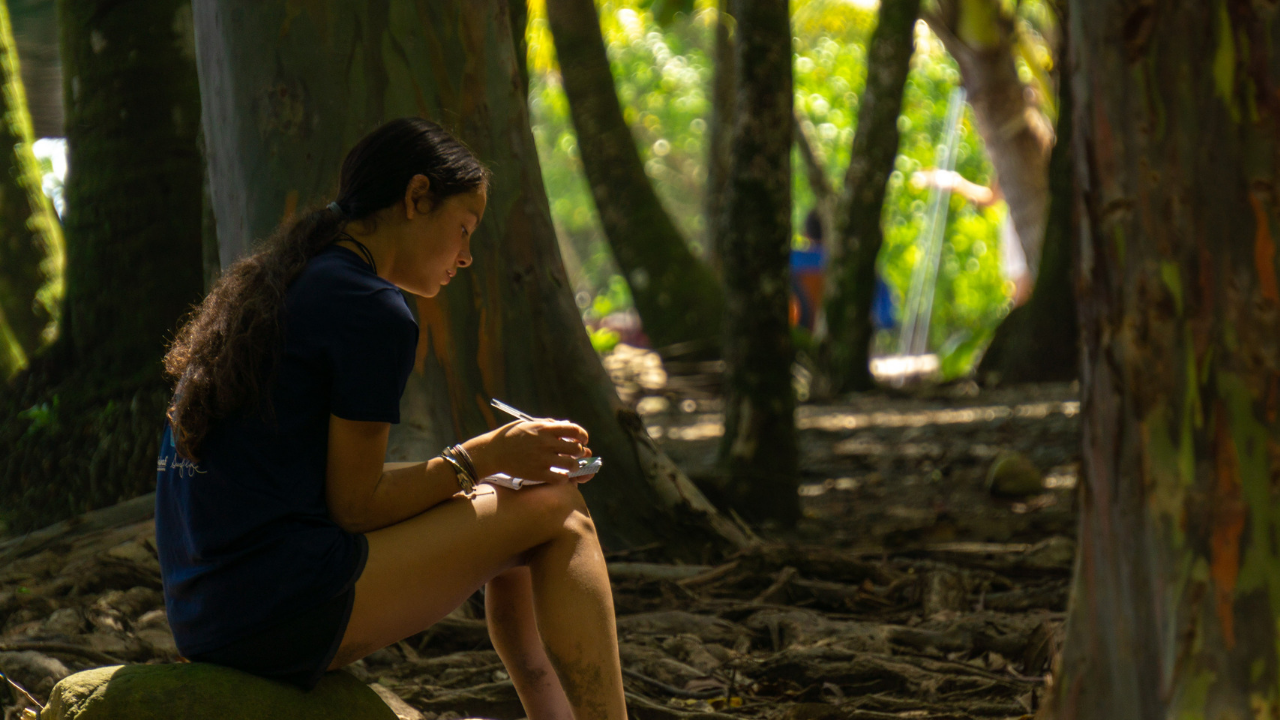
“The solo was the most meaningful part of the course because it gave me lots of time to reflect on myself and my life and the people in it. I’ve come to a lot of very important and necessary realizations that are positive that I would not have anywhere else.”
Kayla T., Coast to Coast 2018
Origins of Solo
Outward Bound’s founder, Kurt Hahn, first introduced the idea of Solo at the Salem school he founded in Germany in 1920. He believed regular periods of silence and solitude were necessary for true learning. Outward Bound later adopted this period of solitude which evolved into a ‘night alone,’ when students camped alone overnight, isolated from the other students. On one of the early ‘nights alone,’ the director taught students a few things about edible plants and berries. He then placed them at half-mile intervals along a stream. They returned three days later, having had life-changing experiences. That’s the reason why Solo usually lasts 48 hours, or even 72 hours.
Solo at Outward Bound Costa Rica
Solo is an opportunity to camp alone and disconnect from the group in a controlled environment with food, water, and shelter. It is a meditative experience, rather than a survival exercise, to reflect about the participant’s Outward Bound course and their life. At OBCR, Solo ranges from a few hours on shorter courses to 1-3 days on our Gap Year & Semester courses. In the event that a participant would need assistance, they can blow their whistle to summon their instructor, who stays within earshot of all participants.
During their Solo, participants journal, do yoga, cook, make up games to play, sleep, exercise, and, of course, they think. Thinking for that amount of time with no distractions in a natural environment is so foreign to some participants that it scares them at first.
Benefits of Solo
You may wonder why we do a solo on the Outdoor Leader Semester. Leadership involves interacting and dealing with people, and Solo is about being alone. Well, a solo experience will actually make you a better leader for a number of reasons:
- It forms values – One of our previous OLS alumni, Lilian, said that during her Solo, she noticed she ‘changed and realised some priorities – like having a balanced lifestyle’ and expanded her comfort zone. Personal reflection provides an opportunity to know yourself better, which leads to value formation. After establishing your own values, you can lead by example.
- It develops compassion – Individuals can get nervous and feel vulnerable during their Solo experience because they are expanding their comfort zone. This experience gives them the ability to become a more empathetic and compassionate leader towards others.
- It builds self-confidence – It can be quite nerve-wracking being alone in the wilderness. Solo can give you an increased comfort in the wilderness. This will give you the self-confidence and the self-assurance you need in the future when you could be leading a group in the backcountry!
The result of Solo for every participant can be astounding, unpredictable, and leave a lasting impression. For some, it is the highlight of the course. For others, it one of the toughest. Regardless, what everyone gets out of this experience is a new outlook on life.


